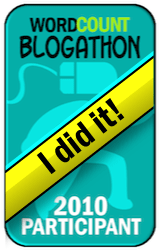I've been reading an interesting biography, Quincy Tahoma: The Life and Legacy of a Navajo Artist, written by a friend of mine, Vera Marie Badertscher of Tucson, with her college buddy Charnell Havens of Ohio. For this book, which totals more than 12 years of research between the two of them, they had to discern how to work on the project from two different states. They both had to have or develop similar passion for the project--enough to keep it going till the book was sold and then published. They had to decide who would be responsible for what part of the project. In essence, they had to find balance, or what the Navajo refer to as hózhó. It's something I've been thinking a lot about since I began reading the book a few days ago.
I'm learning about an artist I'd never heard of before, a man with a fascinating life. But it doesn't last long. He dies an early death from alcoholism. It's a sad story, one filled with many losses before his death. Adopted by a relative as a toddler, the artist grows up searching for a place to belong. I think he has it all along in his art, but his search is not an uncommon one. To me, his story acts as a reminder that we can search all we want, but some things are just not in our control. We must learn to adapt and to accept things as they are. Not that it's easy...but that might be the closest you can get to finding or striving for balance. Acceptance might have to be enough.
So it makes me wonder if this thing called hózhó really exists? Can we get yin when we have too much yang, and vice versa? I have to believe that we can. But I also believe that it might actually exist when we stop looking for it. I think it might be right in front of us already.
When we're indulging too heavily, working too much, trying too hard, we can be sure we don't have it then. It's clear hózhó does not exist in those moments. We can feel the unsteadiness. We can feel the anxiety. We can feel the stress in our stomachs or head or wherever else we're hurting. But doesn't that mean that we should be able to step back and slow down? These are the things we can balance, that we have choices about, that we can take charge of. We cannot determine what other people will or will not do for us. We cannot determine how others will react toward us. We cannot take control of anything that is not ours to control. So it seems to me that the minute we realize that is the minute we get closer to finding balance, because it actually finds us.
We may not achieve it today, but it's something we can achieve.
Agree or disagree? Write your comments below.
Tuesday, December 27, 2011
Subscribe to:
Post Comments (Atom)












1 comment:
I like what Paul says- "...I have learned in whatever state I am to be content. I know how to be abased and I know how to abound. Everywhere and in all things I have learned to be full and to be hungry, both to abound and to suffer need."
This learning to be 'content'- I think is the balance we all need to find- no matter what our situation or circumstance. Once we have this as our baseline, everything else is relative and will not take us on a roller coaster. This is really the key!
Thanks for another great post! You always have a way of making me THINK!
Post a Comment